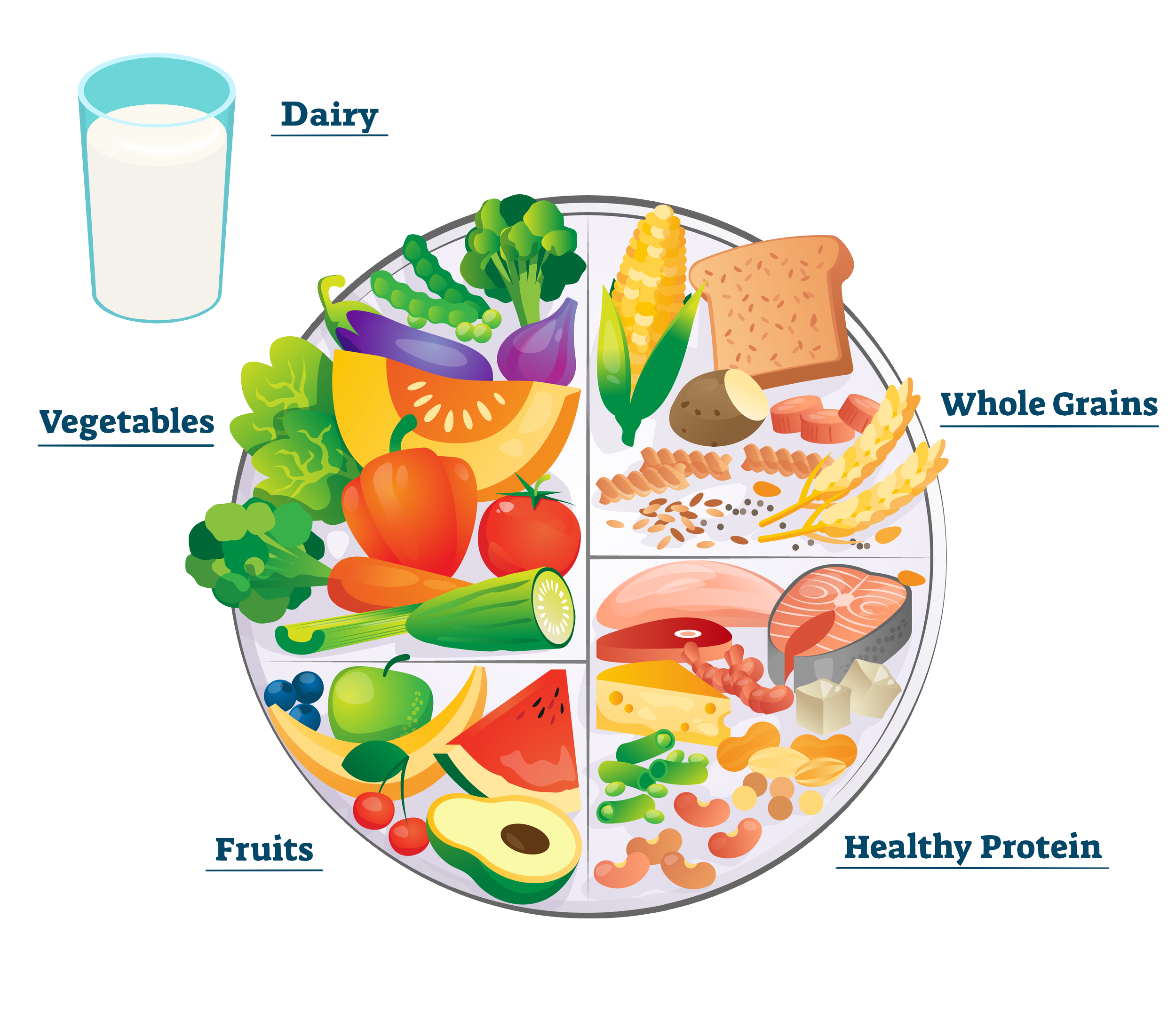There are few evidence-based recommendations regarding caloric intake and dietary recommendations when breastfeeding. The Dietary Guidelines for Americans as well as guidelines developed by the Institute of Medicine recommend that women who are lactating maintain a healthy diet similar to that recommended for all women.1,2 There is no clear evidence that a healthy diet can improve the quality or volume of milk production. Calorie needs vary based on many factors including height, weight, and level of activity, but they increase by an estimated 330 calories for the first six months of lactation and 400 calories for the second six months of lactation.
Guidelines emphasize prioritizing increasing caloric intake using nutrient-dense foods.1,2 Examples of nutrient-dense foods include vegetables, fruits, whole grains, seafood, eggs, beans, peas, lentils, unsalted nuts and seeds, fat-free and low-fat dairy products, and lean meats and poultry when prepared with little or no added sugars, saturated fat, and sodium. Exact daily dietary recommendations for 1,800-2,800 calorie diets include:
- 5-3.5 cups of vegetables
- 5-2.5 cups of fruits
- 6-10 oz of grains
- 3 cups of dairy
- 5-7 oz of protein foods (meats, poultry, eggs, seafood, nuts, seeds, and soy products)
- 24-36 g of oils
- Limiting intake from other sources to 140-370 calories
Based on limited research, nominal dieting and weight loss do not usually negatively affect lactation. A short-term study from 1986 (n=22) found that women who reduced their caloric intake by 19-53% (average caloric reduction from 2,316 to 1,591) for a week did not significantly affect mean infant intake (average intake dropped from 736 grams per day to 718).3
A trial published in 2000 found that weight loss from dietary restriction and increased exercise did not affect the growth of infants.4 Forty overweight women at four weeks postpartum were randomized to either reduce their intake by 500 calories per day and to exercise for 45 minutes four days a week or to maintain their usual intake and exercise habits. After ten weeks of follow-up, there was no significant difference between the weight (1,925 grams for intervention arm vs 1,861 g for controls) or length (7.8 vs 7.3 cm) of infants of mothers in either arm of the trial.
A 2018 study (n=77) even found that women who have had bariatric surgery produce breastmilk similarly to women who have not.5 Women had check-ins during which breastmilk composition was assessed at 3-4 days postpartum and then once a week until six weeks postpartum. There was no significant difference between the estimated caloric value and nutrient makeup of milk between groups. In week four, protein was nominally significantly higher in women who had bariatric surgery (protein 14 vs 10 g/L, p=0.008), and in week five, total carbohydrates was similarly nominally significantly higher (74 vs 70 g/L, p=0.037), although these differences weren’t present in week six.
References
- Dietary Guidelines for Americans, 2020-2025. 9th ed: US Department of Agriculture and US Department of Health and Human Services; 2020.
- Nutrition during lactation. National Academy Press; 1991.
- Strode MA, Dewey KG, Lönnerdal B. Effects of short-term caloric restriction on lactational performance of well-nourished women. Acta Paediatr Scand. Mar 1986;75(2):222-9. doi:10.1111/j.1651-2227.1986.tb10188.x
- Lovelady CA, Garner KE, Moreno KL, Williams JP. The effect of weight loss in overweight, lactating women on the growth of their infants. N Engl J Med. Feb 17 2000;342(7):449-53. doi:10.1056/nejm200002173420701
- Jans G, Devlieger R, De Preter V, et al. Bariatric Surgery Does Not Appear to Affect Women's Breast-Milk Composition. J Nutr. Jul 1 2018;148(7):1096-1102. doi:10.1093/jn/nxy085

